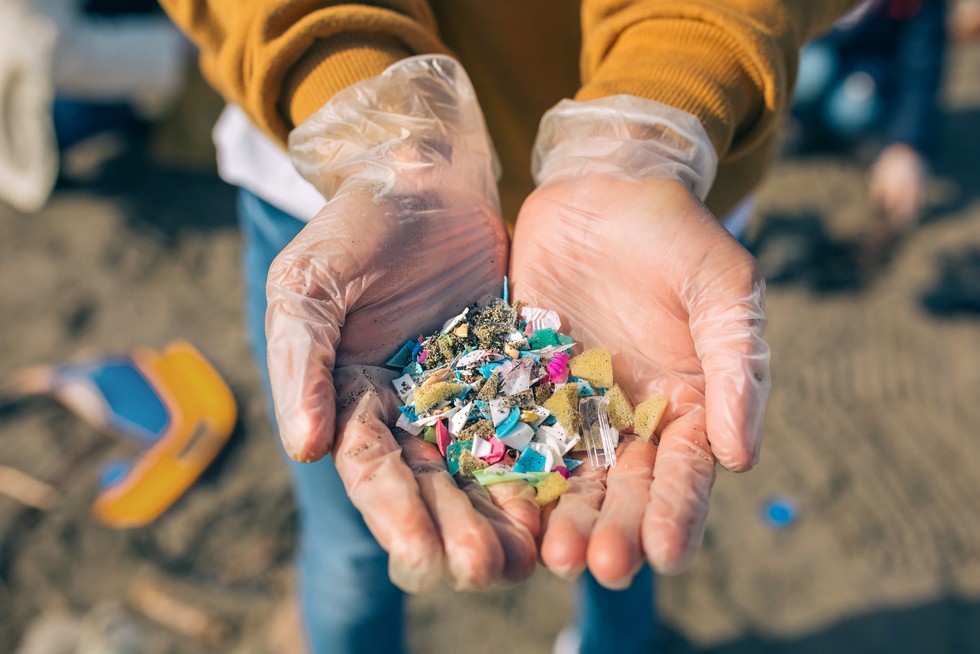Ahmedabad
(Head Office)Address : 506, 3rd EYE THREE (III), Opp. Induben Khakhrawala, Girish Cold Drink Cross Road, CG Road, Navrangpura, Ahmedabad, 380009.
Mobile : 8469231587 / 9586028957
Telephone : 079-40098991
E-mail: dics.upsc@gmail.com

Microplastics
News: According to a recent report of FAO it was found that Microplastics and Nanoplastics adversely impact human and animal gut microbiome.
What are Microplastics?
• Microplastics are small pieces of plastic that are less than 5 mm in size. They can come from the degradation of larger plastic items, such as bottles, bags, or fishing nets, or from the intentional use of plastic particles, such as microbeads in cosmetics or synthetic fibers in clothing.
• Microplastics can enter the environment through various sources, such as wastewater, stormwater runoff, or littering. They can also be ingested by animals and humans through food, water, or air.
• Microplastics have been detected in various foods, such as seafood, salt, honey, beer, and bottled water.
How do they alter Gut microbiome?
Microplastics can alter the gut microbiome, which is the community of microorganisms that live in the digestive tract and perform various functions for health and well-being. Microplastics can affect the gut microbiome in several ways, such as:
Exerting toxic effects - Microplastics can contain or adsorb various toxic chemicals, such as additives, dyes, flame retardants, or pesticides, that can harm the gut microbiome or the host cells. Microplastics can also cause physical damage to the gut lining or induce inflammation or oxidative stress.
Providing supplemental carbon sources - Microplastics can serve as substrates for some microorganisms to grow and metabolize. This can alter the composition and diversity of the gut microbiome and affect its functions. Some microorganisms may also produce enzymes that can degrade microplastics into smaller fragments or monomers.
Acting as vectors for microbial dispersal - Microplastics can carry microorganisms from different sources and introduce them into the gut. This can increase the presence of pathogens or antibiotic-resistant microbes, while decreasing the beneficial bacteria that help with digestion, immunity, or metabolism.

Address : 506, 3rd EYE THREE (III), Opp. Induben Khakhrawala, Girish Cold Drink Cross Road, CG Road, Navrangpura, Ahmedabad, 380009.
Mobile : 8469231587 / 9586028957
Telephone : 079-40098991
E-mail: dics.upsc@gmail.com
Address: A-306, The Landmark, Urjanagar-1, Opp. Spicy Street, Kudasan – Por Road, Kudasan, Gandhinagar – 382421
Mobile : 9723832444 / 9723932444
E-mail: dics.gnagar@gmail.com
Address: 2nd Floor, 9 Shivali Society, L&T Circle, opp. Ratri Bazar, Karelibaugh, Vadodara, 390018
Mobile : 9725692037 / 9725692054
E-mail: dics.vadodara@gmail.com
Address: 403, Raj Victoria, Opp. Pal Walkway, Near Galaxy Circle, Pal, Surat-394510
Mobile : 8401031583 / 8401031587
E-mail: dics.surat@gmail.com
Address: 303,305 K 158 Complex Above Magson, Sindhubhavan Road Ahmedabad-380059
Mobile : 9974751177 / 8469231587
E-mail: dicssbr@gmail.com
Address: 57/17, 2nd Floor, Old Rajinder Nagar Market, Bada Bazaar Marg, Delhi-60
Mobile : 9104830862 / 9104830865
E-mail: dics.newdelhi@gmail.com